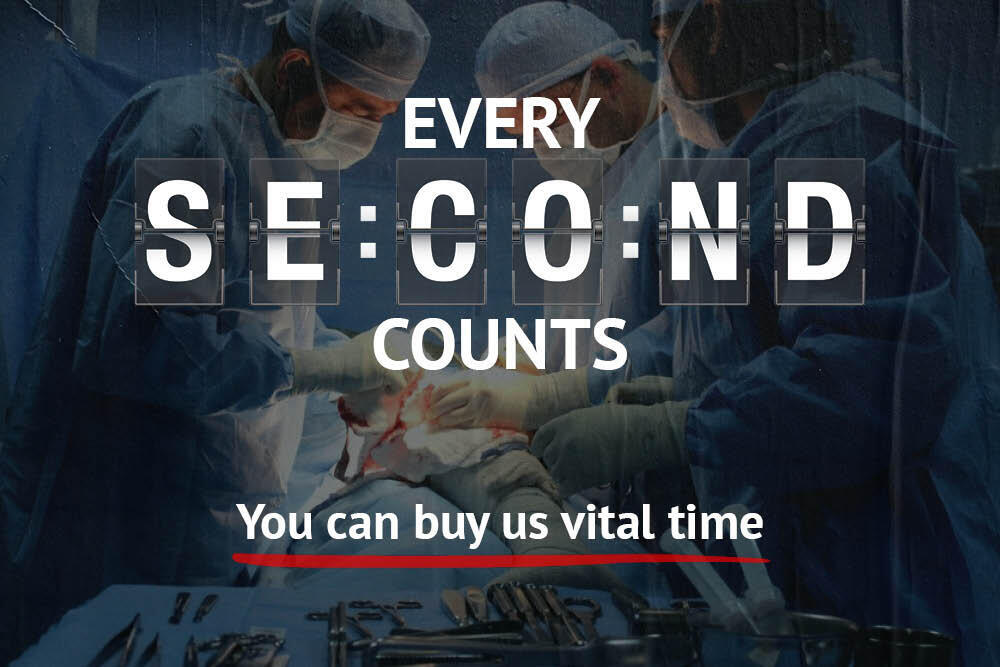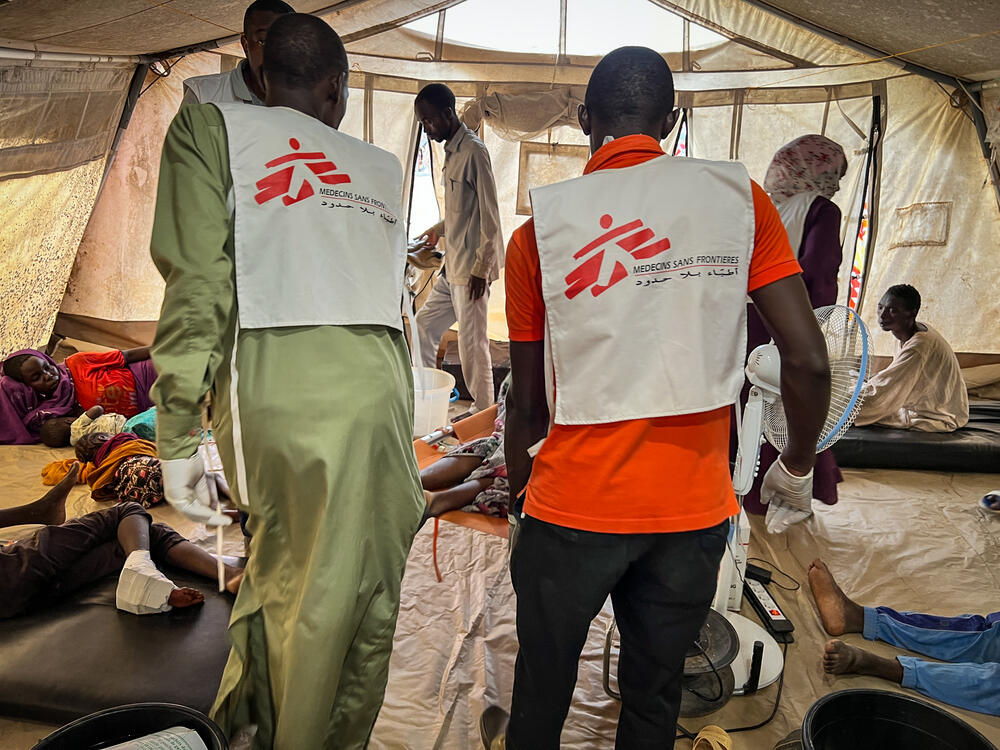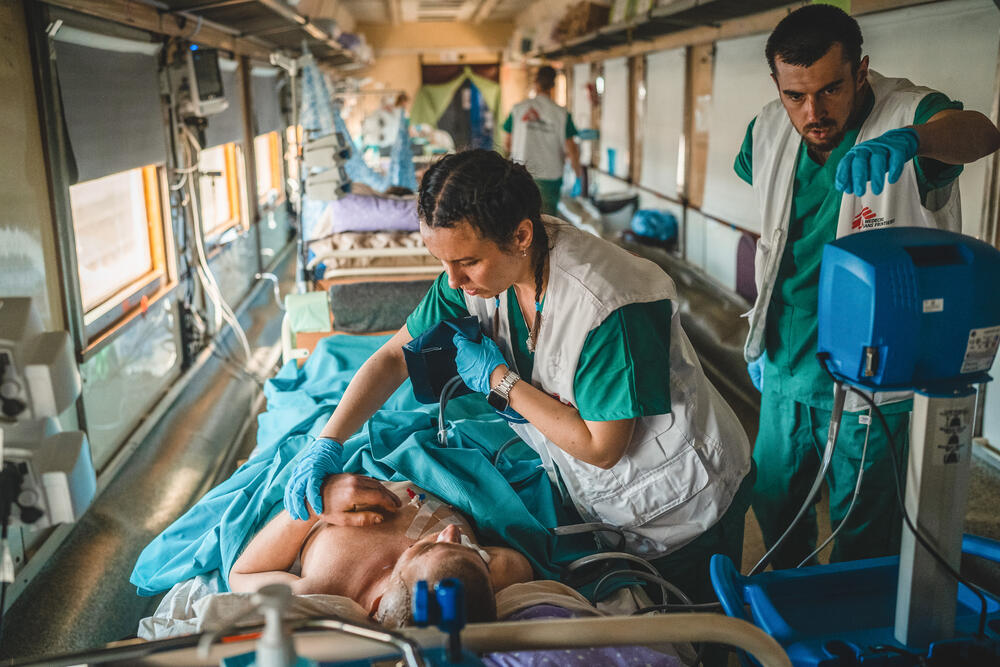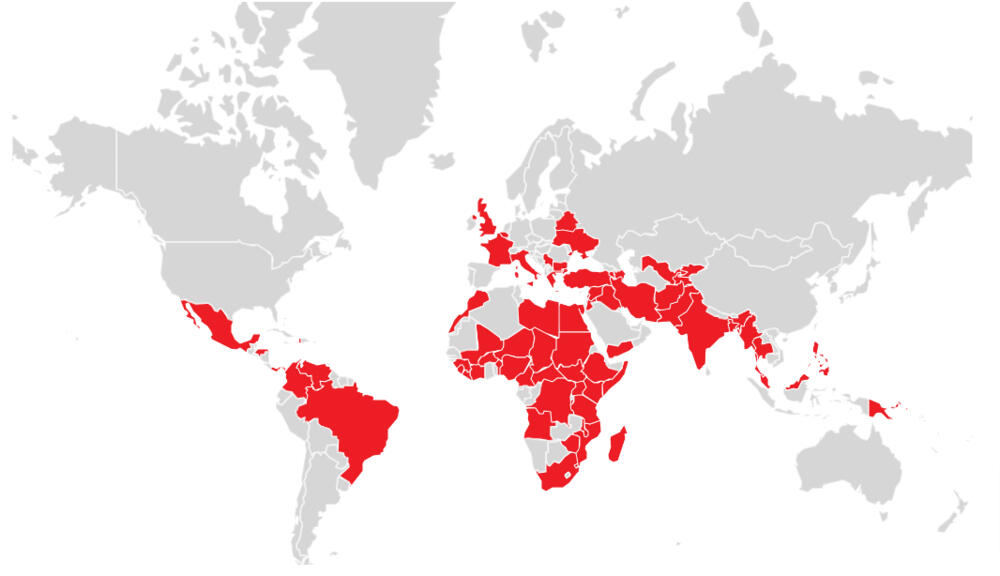MSF Emergency Care
Support our life-saving teams around the world
Seconds. That's the difference between life and death.
In the aftermath of an attack, MSF medics may need to stop life-threatening bleeding, treat a gunshot wound or care for bomb blast survivors. They need to think fast, and act fast.
Around the world, our teams are working right now to beat the clock and save lives. We are in the conflict zones that hit the headlines, and the ones that don't.
From our surgeons to our supply chains, we are the emergency experts. And you can buy us vital time.
OUR IMPACT
From Gaza to Sudan, our expert teams treat a patient for the impact of physical violence every six minutes.
Every 15 seconds
A patient is admitted to an MSF emergency room
27,546
People treated for physical violence in Gaza between 7 October 2023 and the end of September 2024
125,870
Surgical interventions carried out by MSF in a year
THE CRISIS
Why now?
Right now, more countries are engaged in conflict than at any other time since World War II. Healthcare systems are struggling to treat traumatic injuries, meaning people affected by war and instability make up the largest proportion of Médecins Sans Frontières / Doctors Without Borders (MSF) patients. Our projects need funding for staff and supplies to save more lives.
What is MSF doing?
In Gaza, as hospitals shake from airstrikes and staff and patients live under siege, we work to triage and treat the severely wounded. In the vast crisis that has gripped Sudan, we’ve performed trauma surgery around the clock and cared for survivors who fled to Chad from horrific violence. In Yemen, in Haiti, in the DRC, our expert teams are responding now.
Why MSF?
MSF has been working in conflicts and crises since our founding in 1971. From paediatric nurses to off-road drivers, our experienced staff are responding to complex and fast-moving humanitarian emergencies across more than 70 countries, including high-insecurity environments. We think fast, act fast and adapt to save lives.
YOUR IMPACT
In a world of escalating conflict, there has never been a more important time for your support.
Please donate now.
80.2%
OF EVERY € DONATED PAYS FOR MEDICAL PROJECTS
15%
OF EVERY € DONATED IS SPENT ON FUNDRAISING
4.8%
OF EVERY € DONATED IS SPENT ON OFFICE MANAGEMENT




